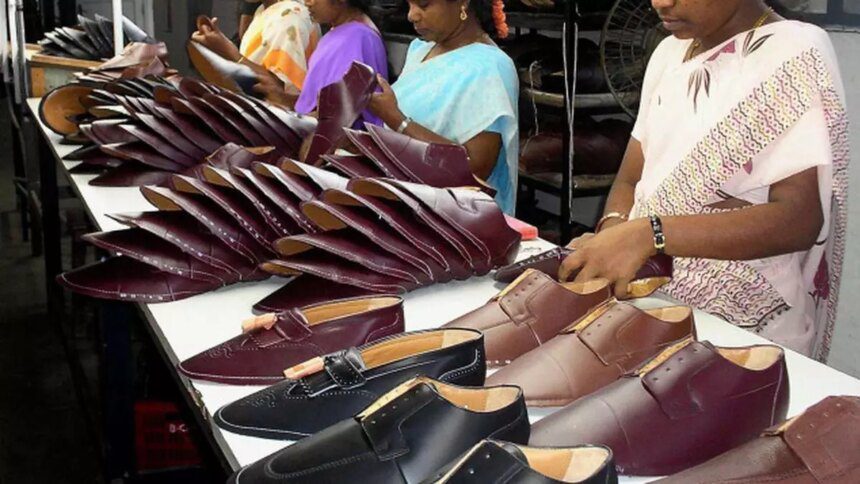Tamil Nadu has made significant strides in enhancing its footwear manufacturing sector and innovating public education through its Illam Thedi Kalvi initiative, as highlighted in the Economic Survey for 2024-25.
As a frontrunner in the traditional leather industry, Tamil Nadu is now also focused on advancing non-leather footwear production. The state accounts for approximately 38% of India’s footwear and leather product output and about 47% of the nation’s leather exports, providing more than 200,000 jobs in the process.
The presence of esteemed technical and academic institutions, such as the Central Leather Research Institute, the Council for Leather Exports, and the Footwear Design and Development Institute, has bolstered the sector’s growth.
In recent years, Tamil Nadu has implemented several initiatives to attract major footwear manufacturers. The government is prioritizing the development of industrial estates in rural regions, ensuring a readily available workforce, especially among women. These efforts have successfully brought in foreign investors, including Taiwan’s Feng Tey, which has initiated contract manufacturing for Nike.
Plans for future footwear investments have been made, with land identified in districts such as Madurai and Sivagangai to guarantee availability for potential manufacturers.
The Tamil Nadu investment promotion agency, Guidance, has been proactive in its investment outreach, establishing essential connections with Taiwanese organizations to forge relationships with prospective investors in the footwear industry. Guidance has also formed ties with key Nike contract manufacturers like Pou Chen, Hong Fu, Taekwang, and Changshin, positioning Tamil Nadu as a favorable destination for manufacturing operations.
Regarding the Illam Thedi Kalvi initiative, launched by the Tamil Nadu government, the program aims to address educational disparities exacerbated by the Covid-19 pandemic and the digital divide. Focused on delivering education through traditional methods, it aims to minimize students’ dependence on online resources, particularly during the pandemic. Volunteers are deployed to provide door-to-door educational support to students, thereby bridging the educational gap across the state.
A rapid assessment conducted by the State Planning Commission in September 2022 highlighted the program’s positive impact, surveying volunteers, teachers, headmasters, and parents from 362 schools across six districts: Ariyalur, Cuddalore, Nagapattinam, Salem, Thiruvarur, and Villupuram.
Parents reported noticeable improvements in their children’s educational experiences, while teachers noted that a playful approach to learning had rekindled students’ interest. As a result, students engaged more actively and participated enthusiastically in their regular classes.
Students displayed increased enthusiasm for mathematics and made significant headway in language skills within their traditional classrooms.
Post-pandemic, the scheme persists in providing essential support through remedial lessons. Volunteers are dedicated to integrating out-of-school children into mainstream education, focusing on groups such as girls, children with special needs, transgender children, and those from migrant families. Prospective volunteers can apply online to join the program, which offers monthly remuneration.
The program effectively utilizes technology to track the learning progress of primary school students, with volunteers using achievement charts to record their advancements.










